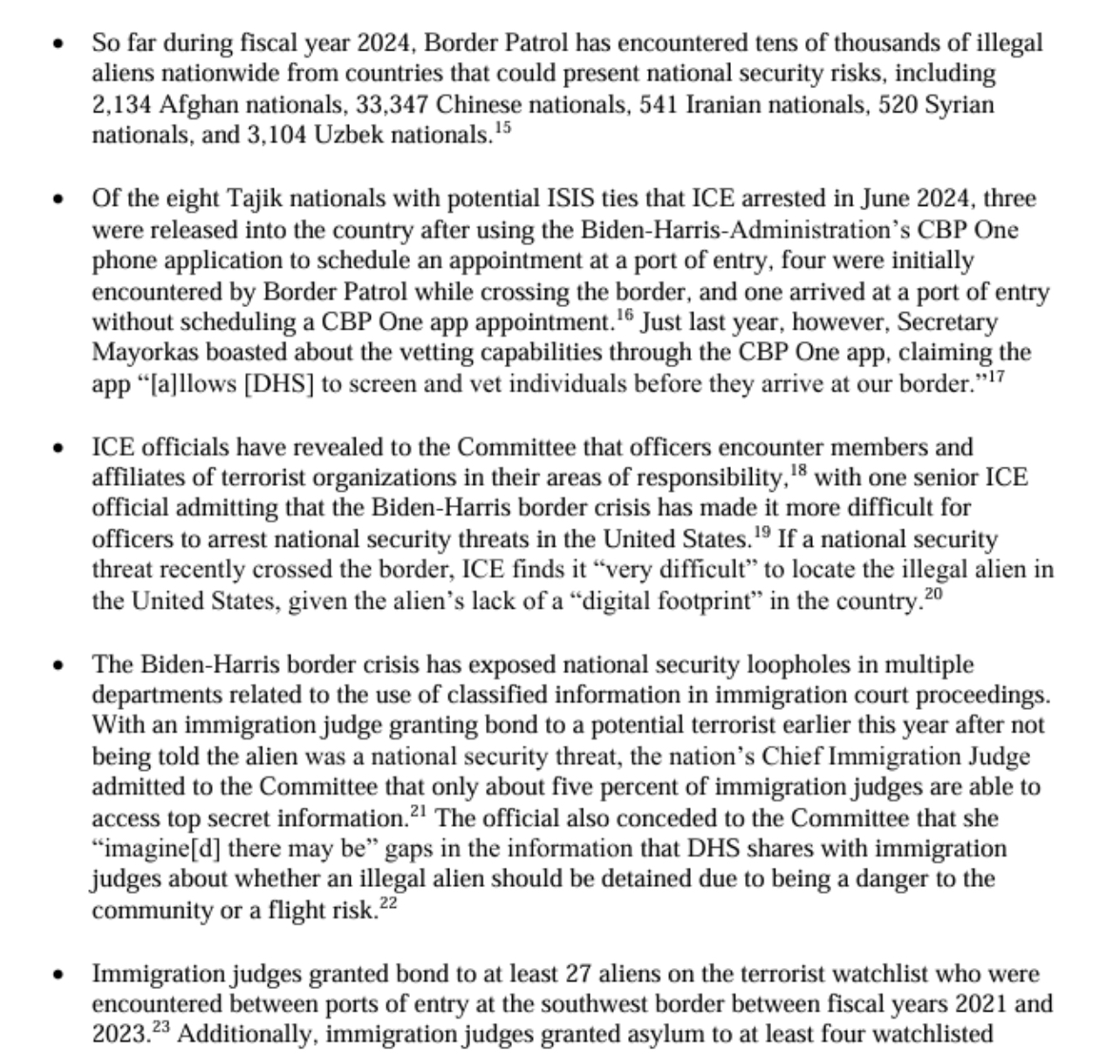
As fiscal year 2024 unfolds, the data released by Border Patrol is sounding alarm bells across the nation. The agency has encountered tens of thousands of illegal aliens from countries that could potentially pose national security risks. This includes 2,134 Afghan nationals, 33,347 Chinese nationals, 541 Iranian nationals, 520 Syrian nationals, and 3,104 Uzbek nationals. With such staggering numbers, it is imperative to scrutinize the policies and systems currently in place and their implications for our national security.
The Biden-Harris Administration has touted the CBP One phone application as a technological marvel that allows the Department of Homeland Security (DHS) to screen and vet individuals before they arrive at our border. However, recent events have cast a dark shadow over these claims. In June 2024, eight Tajik nationals with potential ISIS ties were arrested by ICE. Disturbingly, three of them had gained entry into the country by using the CBP One app to schedule an appointment at a port of entry. This glaring oversight raises serious questions about the efficacy of the vetting process touted by Secretary Mayorkas.
ICE officials have disclosed to Congressional committees that they regularly encounter members and affiliates of terrorist organizations within the United States. A senior ICE officer admitted that the ongoing border crisis has significantly hampered their ability to arrest national security threats. The lack of a “digital footprint” for many illegal aliens makes it exceedingly difficult to track and locate them once they have crossed the border. This represents a severe vulnerability in our national security framework.
The border crisis has also exposed critical loopholes in the usage of classified information in immigration court proceedings. Earlier this year, an immigration judge granted bond to a potential terrorist without being informed that the individual was a national security threat. Shockingly, only about five percent of immigration judges have access to top-secret information. This lack of comprehensive data sharing between DHS and immigration courts jeopardizes the safety of our communities.
Between fiscal years 2021 and 2023, immigration judges granted bond to at least 27 aliens on the terrorist watchlist who were encountered at the southwest border. Additionally, asylum was granted to at least four individuals on the watchlist. These figures are not just statistics; they are potential threats that have now been given a foothold within our borders.
The current administration’s handling of the border crisis has unveiled significant national security risks. The reliance on flawed vetting technologies like the CBP One app, the difficulties in tracking illegal aliens, and the gaps in information-sharing among immigration judges all contribute to a precarious situation. It is imperative that immediate and effective measures be taken to fortify our borders and ensure that national security is not compromised.
The American people deserve a government that prioritizes their safety and well-being. It is time for a thorough re-evaluation of our border policies and the implementation of robust security measures to protect our nation from these looming threats.
By critically examining these issues, we hope to underscore the urgent need for policy reforms that will address the multifaceted challenges posed by the current border crisis

.